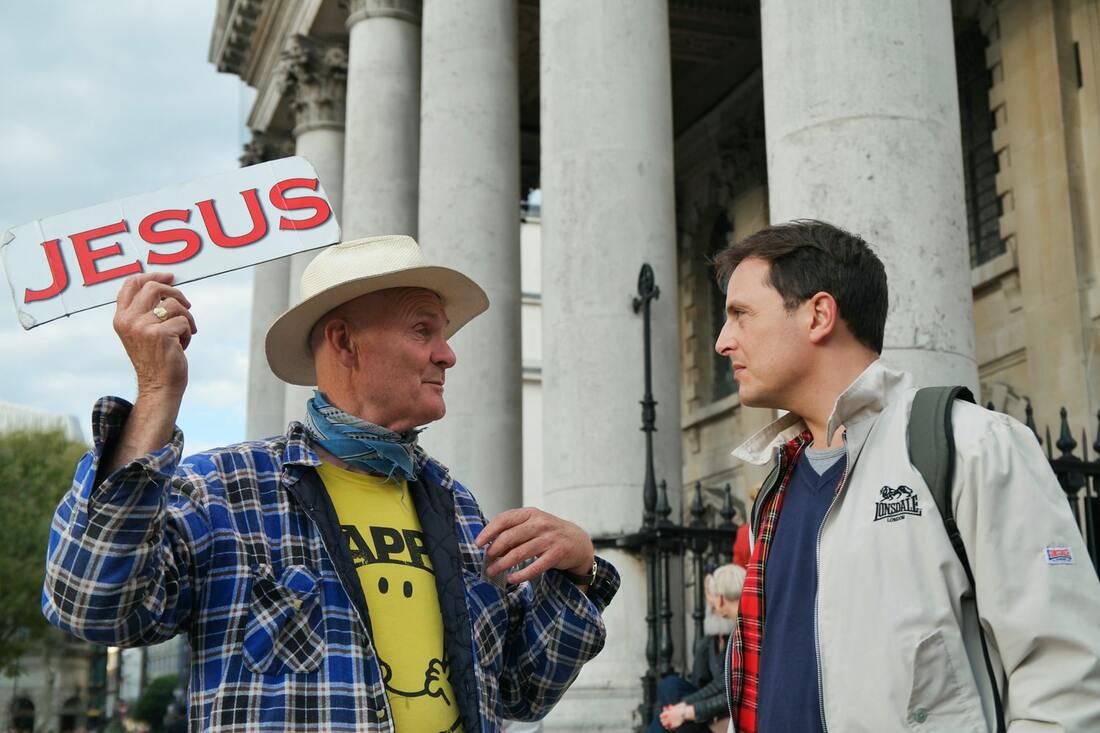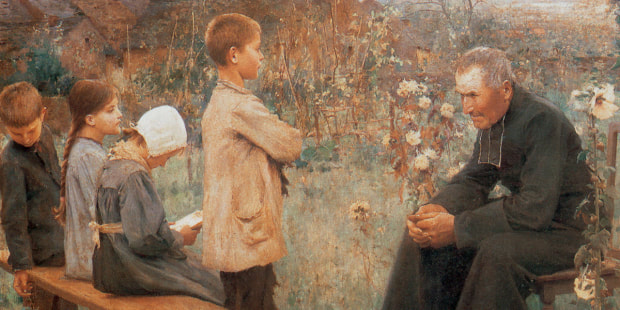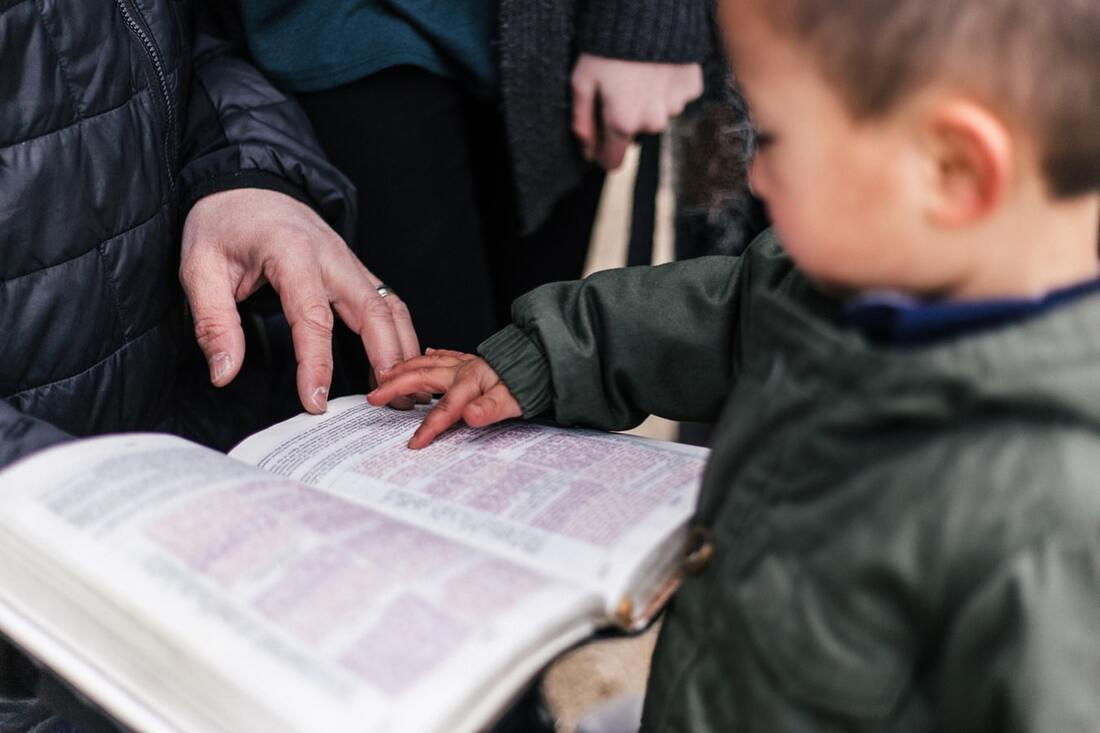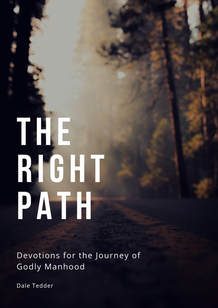|
The Devoted Life (for the week of October 18, 2020) PDF at bottom Note to Group Leaders: More than anyone else, you are aware of the size of your group, time constraints, the needs of your group, etc. Please read through the Scripture and material below and use whatever you believe will be most helpful to your group. This Week’s Scripture: Acts 2:42-47 Key Idea from Sermon “New life in Christ will fill us with devotion to better know and love God so we can better love and serve others. God will bring the increase to his Kingdom.” Discussing the Scripture 1. The Book of Acts is often called, “the Acts of the Apostles.” Read the following verses and write down your suggestion for another title (Acts 1:4-5; 1:8; 2:4; 2:17; 2:33; 4:8; 4:31; 6:3; 6:10; 8:17; 9:17)? 2. Read Acts 2:1-41. What happened to bring all these new followers of Jesus Christ together in Acts 2:42-47? 3. Verse 42 says these new believers devoted themselves to four activities. Look up the word “devoted” in a dictionary. What does it mean? Why do you think they were so devoted? Why is such devotion important for a follower of Jesus? 4. List the four activities that verse 42 says these new believers were devoted to. 5. What would the “apostles’ teaching” have included? (Read Matthew 28:18-20, John 14:25-26, John 16:12-13, and Acts 1:3 for ideas.) What does the “apostles’ teaching” include today? 6. The Greek word for “fellowship” is, koinonia. It means sharing and participating in a common goal. One commentator said it was an intentional and intimate experience, where the believers shared together “in material goods as well as spiritual wealth.” What does Acts 2:42-47 suggests that fellowship looked like? 7. The reference to “breaking of bread” in verse 2, is twofold. It means both enjoying a common meal together as well as the Lord’s Supper. Why would both have been so important to the early Christians? Why are both so vital for Christians today? 8. Verse 42 tells us these new believers also devoted themselves to prayer. The Greek word here actually means, “the prayers.” This tells us that not only did they pray individually but also together as a community. Why is that so significant in the life of a Christian community? 9. Verse 43 points out that God strengthened this new community of believers with the presence of supernatural miracles performed by the apostles, which filled the people with awe. Why do you think God did this? 10. What do verses 44-46 report as the result of the devoted life of this new Christian community? 11. And what does verse 47 say was the result of verses 42-46? Who ultimately produced that fruit of the Kingdom of God? (Bonus Question: How would you write this out as a mathematical equation?) Applying the Scripture 12. Can Christians today have the same level of devotion as these early believers did? Why or why not? Do you? Why or why not? 13. How can you devote yourself to the apostles’ teaching? 14. How can you devote yourself to Christian fellowship? 15. How can you devote yourself to “the breaking of bread” (Lord’s Supper) (Read 1 Corinthians 11:23-29 for some insight)? 16. How can you devote yourself to private and corporate prayer? 17. Whose help will you need to be so devoted? (not a trick question) ACTS (A prayer guide for this lesson)
John Wesley’s Questions for Self-Examination
0 Comments
Sharing Your Story (for the week of October 11, 2020) PDF at bottom Note to Group Leaders: More than anyone else, you are aware of the size of your group, time constraints, the needs of your group, etc. Please read through the Scripture and material below and use whatever you believe will be most helpful to your group. This Week’s Scripture: Acts 4:1-20 Key Idea from Sermon “Be ready to talk to others about what you see God doing in you and around you.” Discussing the Scripture 1. According to verses 1-3, what got the apostles in trouble with the religious authorities? What happened to Peter and John because of this? 2. What was the result of what Peter and John were doing (v. 4)? Do you think this result was worth getting in trouble for? Why or why not? 3 What question was asked of Peter and John in verse 7? Why do you think they were asked this question? 4. Who enabled Peter to answer the religious authorities in this high-pressure situation (v. 8)? What does this teach you about your need when sharing your story about who God is and what he has done in your life? 5. In verses 9-11, what was Peter’s answer to the religious authorities? 6. What truth did Peter communicate in verse 12? (see also Matthew 1:21; John 14:6; Acts 10:43; 1 Timothy 2:5) 7. What astonished the religious leaders, according to verse 13? How does that encourage you to share your story about who God is and what he has done in your life? 8. In verses 14-17, the religious leaders conferred with one another and decided to tell Peter and John they could no longer speak to anyone else in (about) the name of Jesus. Why? 9. How did Peter and John reply in verses 18-19? (see also Acts 5:29) Could you reply the same way Peter and John did? Why or why not? 10. What are some things you and these apostles have in common? (A hint for one answer is found in Romans 8:11) Applying the Scripture 11. What would you say are your top three obstacles in sharing your story about who God is and what he has done in your life? 12. Reflect on each obstacle you just listed. What is it about each one that makes it an obstacle for you? 13. What are three things you could begin doing today to move past those obstacles? What truths did you learn in this lesson’s Scripture to help you make those changes? ACTS (A prayer guide for this lesson)
John Wesley’s Questions for Self-Examination
Know and Use Your Spiritual Gifts (for the week of October 4, 2020) PDF at bottom Note to Group Leaders: More than anyone else, you are aware of the size of your group, time constraints, the needs of your group, etc. Please read through the Scripture and material below and use whatever you believe will be most helpful to your group. This Week’s Scripture: John 13:1-17 Key Idea from Sermon “We get to exchange expressions of reconciliation and communicate love when we lower ourselves and serve others.” Discussing the Scripture
Applying the Scripture
ACTS (A prayer guide for this lesson)
John Wesley’s Questions for Self-Examination
The Nature, Design, and General Rules of the United Societies
in London, Bristol, Kingswood, and Newcastle upon Tyne (1743) 1. In the latter end of the year 1739 eight or ten persons came to me in London who appeared to be deeply convinced of sin, and earnestly groaning for redemption. They desired (as did two or three more the next day) that I would spend some time with them in prayer, and advise them how to flee from the wrath to come, which they saw continually hanging over their heads. That we might have more time for this great work I appointed a day when they might all come together, which from thenceforward they did every week, namely, on Thursday, in the evening. To these, and as many more as desired to join them (for their numbers increased daily), I gave those advises from time to time which I judged most needful for them; and we always concluded our meeting with prayer suited to their several necessities. 2. This was the rise of the United Society, first at London, and then in other places. Such a Society is no other than ‘a company of men “having the form, and seeking the power of godliness”, united in order to pray together, to receive the word of exhortation, and to watch over one another in love, that they may help each other to work out their salvation’. 3. That is may the more easily be discerned whether they are indeed working out their own salvation, each Society is divided into smaller companies, called Classes, according to their respective places of abode. There are about twelve persons in every class, one of whom is styled the Leader. It is his business: (1). To see each person in his class once a week at the least; in order To receive what they are willing to give toward the relief of the poor; To inquire how their souls prosper; To advise, reprove, comfort, or exhort, as occasion may require. (2). To meet the Minister and the stewards of the Society once a week, in order: To pay in to the stewards what they have received of their several classes in the week proceeding; To show their account of what each person has contributed; and To inform the Minister of any that are sick, or of any that walk disorderly and will not be reproved. 4. There is one only condition previously required in those who desire admission into these societies, ‘a desire to flee from the wrath to come, to be saved from their sins’. But wherever this is really fixed in the soul it will be shown by its fruits. It is therefore expected of all who continue therein that they should continue to evidence their desire of salvation, First, By doing no harm, by avoiding all evil in every kind — especially that which is most generally practised. Such is: The taking the name of God in vain. The profaning the day of the Lord, either by doing ordinary work thereon, or by buying or selling. Drunkenness, buying or selling spirituous liquors; or drinking them (unless in cases of extreme necessity). Fighting, quarrelling, brawling; brother ‘going to law’ with brother; returning evil for evil, or railing for railing; the ‘using many words’ in buying or selling. The buying or selling uncustomed goods. The giving or taking things on usury. Uncharitable or unprofitable conversation, especially speaking evil of ministers or those in authority. Doing to others as we would not they should do unto us. Doing what we know is not for the glory of God, as, The ‘putting on of gold or costly apparel’, particularly the wearing of calashes, high-heads, or enormous bonnets; The taking such diversions as cannot be used in the name of the Lord Jesus, The singing those songs, or reading those books, which do not tend to the knowledge or love of God; Softness, and needless self-indulgence; Laying up treasures upon earth; Borrowing without a probability of paying: or taking up goods without a probability of paying for them. 5. It is expected of all who continue in these societies that they should continue to evidence their desire of salvation, Secondly, by doing good, by being in every kind merciful after their power, as they have opportunity doing good of every possible sort and as far as is possible to all men: To their bodies, of the ability which God giveth, by giving food to the hungry, by clothing the naked, by visiting or helping them that are sick, or in prison. To their souls, by instructing, reproving, or exhorting all they have any intercourse with; trampling under foot that enthusiastic doctrine of devils, that ‘we are not to do good unless our heart be free to do it.’ By doing good especially to them that are of the household of faith, or groaning so to be; employing them preferably to others, buying one of another, helping each other in business — and that so much the more because the world will love its own, and them only. By all possible diligence and frugality, that the gospel be not blamed. By running with patience the race that is set before them; ‘denying themselves, and taking up their cross daily’; submitting to bear the reproach of Christ, to be as the filth and offscouring of the world; and looking that men should ‘say all manner of evil of them falsely, for their Lord’s sake’. 6. It is expected of all who desire to continue in these societies that they should continue to evidence their desire of salvation, Thirdly, By attending upon all the ordinances of God. Such are: The public worship of God; The ministry of the Word, either read or expounded; The Supper of the Lord; Family and private prayer; Searching the Scriptures; and Fasting, or abstinence. 7. These are the General Rules of our societies; all which we are taught of God to observe, even in his written Word, the only rule, and the sufficient rule, both of our faith and practice. And all these we know his Spirit writes on every truly awakened heart. If there be any among us who observe them not, who habitually break any one of them, let it be made known unto them who watch over that soul, as they that must give account. We will admonish him of the error of his ways. We will bear with him for a season. But if then he repent not, he hath no more place among us. We have delivered our own souls. John Wesley Charles Wesley In the previous post, I mentioned a book by George Grant that radically changed how I think, minister, etc. It’s called The Micah Mandate. Once again, I highly recommend it! I would now like to share how God used an audio message (also by George Grant) about an obscure man from the pages of history whom most folks have never heard of. Like Grant's book mentioned in the previous post, his message about Gerard Groote blessed my life and ministry in ways I could not even have imagined as I put the "tape" into the tape-player of my car. Here’s what I wrote about twenty years ago…
Earlier this year God poured his grace upon me as he placed in my hands an audiotaped lecture entitled, “Gerard Groote and the Brethren of the Common Life.” Providentially, this also was by George Grant. I can’t express how moved I was by what I heard in this message. In this lecture Grant basically revealed what a biblical worldview should look like in the “everydayness” of a Christian’s life and ministry. He accomplished this by sharing God’s work and power in and through the life of a man named Gerard Groote. Groote lived in the 14th century, and, as Grant says at the beginning of his address, “It would be difficult to find a single page of modern history written about him. But it would be even more difficult to find a single page of modern history not affected by him.” Below are the notes I took from Grant’s message on Groote. I’m sure much of it will not have the same impact I experienced in this format. But I believe the ideas taught and lived out by Groote and expounded by Grant are more than worth passing on and meditating upon. Enjoy, Dale. Notes on Gerard Groote: Brethren of the Common Life Based on a lecture by George Grant
The Devotio Moderna was to be a comprehensive lifestyle rooted in a biblical worldview. Let’s take a look at the distinctives of this “radical discipleship.” 1.) The Devotio Moderna , first of all, emphasized holiness for every Christian – not just for a few. Groote wanted common piety for common folk – this was the heart of his message.
2.) Secondly, the Devotio Moderna emphasized the importance of self-examination, as a way of cultivating humility.
3.) Groote’s Devotio Moderna emphasized the importance of covenantal communities, as the real-life context for discipleship.
4.) Groote’s Devotio Moderna emphasized the importance of a Confessional Standard (standards rooted in the biblical antithesis).
5.) Therefore, Groote’s Devotio Moderna placed a high premium on teaching every man, woman, and child, the Bible.
Together, these distinctives: Holiness, Humility, Covenantal Community, Antithesis, and Catechizing – comprised what Groote called “Classical Christianity” or what we might call, “Biblical Orthodoxy.”
Groote said, “Lay foundations that will endure in the hearts of your children. For there are only two things that are eternal in all of the created order: the children under your care, and the Word of God.” Grant’s Prayer at the end of the message… O Father; Almighty Father, I confess to you that I am often diverted by pleasant alternatives. I am often tantalized by that which will bring success, effectiveness, suasion in the here and now. I pray that you would give me eyes to look beyond the horizon of just this moment. Enable me to invest for all eternity. Enable us to have a distinctive vision of discipleship – like that of Gerard Groote before us. Enable us to quest for holiness, humility, covenantal community, antithesis, catechizing – classical Christianity – in the hearts of our children – first and foremost. Lord God, I pray that we will produce not just successful businessmen, or men and women effective in their vocations. We yearn for REFORMATION. Change the world, O God! And use us in the process. We pray this in Jesus name. Amen and amen. ***************** Here’s an introduction on Groote that George Grant wrote for Ligonier Ministries. Every now and then God is particularly good. Of course he’s always good, but every now and then his goodness is lavished in our lives in such a way that we immediately sense how undeserving we really are. Our eyes are opened to who God truly is and we are left awestruck. A whole new vision is set before us and a fresh call is heard.
That was how I felt about 21 years ago when I stumbled upon a book that revolutionized my faith, ministry, and life. The book is entitled, The Micah Mandate, by George Grant. (Get this book!) It’s a marvelous, God-honoring study of what a biblical worldview is and how it should ignite those who hold it dear. Up to that point I had read every book around on the subject of Christian worldview, but those books seemed to only focus on the abstract and philosophical. Grant’s book expanded my world and broadened my horizons. He emphasized that worldview isn’t just something for the ivory towers of academia, but for all of life. Our worldview – our treasured faith – is for every sphere of life. I haven’t been the same since. With that book's influence racing through my heart and mind, I began a weekly men's discipleship ministry about a year later. My hope was that a few men would gather together around God’s Word and be saturated and transformed by it. I prayed that men would be renewed and revived. I deeply desired that biblical, God-glorifying, Christ-exalting, Spirit-filled disciples would be born – men who would change the world – beginning with themselves, then in and through their families, workplaces, churches, communities, the culture, and then perhaps, one day, the world. God honors such efforts. Reformation and revival happens in such ways. My hope for the men’s ministry way back then, as it is today, was for God to penetrate the hearts, minds, and souls of our men with his Word, so thoroughly, that he would cultivate in their lives a framework (worldview) for viewing, interpreting, and applying their faith in every sphere of life. God has been pleased to work mightily in the lives of many of our men in such a way. May he continue to do so for generations to come. Soli Deo Gloria. Grace and Truth, Dale (originally written 2015, but seems timely for the present)
Remembering Our Mission On the very first page of our United Methodist Book of Discipline, we are reminded of the mission of the United Methodist Church. Our stated mission is, To make disciples of Jesus Christ for the transformation of the world. That’s why we’re here. Our ultimate purpose is to glorify God and we do so by making disciples of his Son who will change the world with his Gospel. Once again, I love the way our Discipline puts it. It says, The local church provides the most significant arena through which disciple-making occurs. It is a community of true believers under the Lordship of Christ. It is the redemptive fellowship in which the Word of God is preached by persons divinely called and the sacraments are duly administered according to Christ’s own appointment. Under the discipline of the Holy Spirit, the church exists for the maintenance of worship, the edification of believers, and the redemption of the world. I love that mission and the language used to express it. The World’s Desperate Need Who could argue that our world is presently in serious need of redemption? In China, Iran, Iraq, Syria, and certainly in our country – just to name a few – we find overwhelming sin, devastation, unrest, brokenness, war, death, and more. The fallen, sinful, broken human condition is on display for all to see. If ever the world needed faithful disciples of Jesus Christ to bring redemption, it’s now. Yet it’s not just “over there,” is it? It’s here in our own backyard. The need is in our own lives, our families, our workplaces, and our local communities. Every sphere of our lives needs the transforming power of the Gospel of Jesus Christ. That’s why we’re called to make faithful disciples of Jesus Christ. Two Stories I want to briefly share two stories. The first is about an incredibly small and seemingly insignificant group of people who began turning the greatest empire in the world (at that time) upside down with nothing more than the Gospel. The second story takes place about 1,700 years later. It involves another small group of people who, armed only with that same Gospel, helped turn England upside down (or better, right-side up). Story #1 Our first story begins with the Apostle Paul and his companions, who had just come from Philippi. In fact, they had just been released from prison and had been escorted out of the city by the officials. Their next stop was going to be Thessalonica, which was about 100 miles away. On their way there, they passed through a couple of cities, Amphipolis and Apollonia, staying at each only one night before heading out the next morning. When they arrived in Thessalonica, Paul began his usual routine of going to the local synagogue of the city. Why did he go there first? Verses 2-3 tell us, As his custom was, Paul went into the synagogue, and on three Sabbath days he reasoned with them from the Scriptures, [3] explaining and proving that the Christ had to suffer and rise from the dead. “This Jesus I am proclaiming to you is the Christ,” he said. Paul was a Jew. His heart was for his fellow Jews. He loved them. Therefore, even though he was called to be the Apostle to the Gentiles, he just couldn’t help himself. He often went first to his own people. What did he say to them? He reasoned with them. He taught and preached from the Old Testament. He used it to explain and prove that Jesus was just who he said he was, the fulfillment of Old Testament prophecies. Furthermore, he showed them that Christ had to suffer and die on the Cross for the sins of the world – but that Christ also had to rise from the dead for our salvation. Paul proclaimed that Jesus of Nazareth was no less than the Christ – the Messiah of God. The Gospel of the Kingdom This is the Gospel of Jesus Christ, the Gospel of the Kingdom of God. The Gospel first calls us to turn away from our own sin – our fallen, broken, and selfish thinking, desires, words, actions, and attitudes. It also calls us to trust in Christ alone to forgive us, save us, heal us, mend us, lead us, and to make us holy. That’s the Gospel and that’s what Paul preached and taught in Thessalonica. And people responded. Take a look at verse 4, Some of the Jews were persuaded and joined Paul and Silas, as did a large number of God-fearing Greeks and not a few prominent women. People responded. Lives were changed. Supernaturally speaking, disciples of Jesus Christ had been born. But, as often is the case, some folk weren’t happy about this. In fact, where the Gospel is preached and where God is doing a great work of deliverance, there will often be opposition. We discover this as we read verse 5, But the Jews were jealous; so they rounded up some bad characters from the marketplace, formed a mob and started a riot in the city. They rushed to Jason’s house in search of Paul and Silas in order to bring them out to the crowd. You see, the Jews weren’t at all happy about this work of Paul and company, nor the message they proclaimed. So they got the meanest, toughest, nastiest people they could find to stir up trouble for Paul and Silas and their newest converts. Thessalonica was something of a harbor town. There were plenty of drifters in search of trouble, roaming around the marketplace. It wouldn’t have been a great effort to round up and “encourage” some of these folk to cause a little trouble for Paul and company. And that’s exactly what they did. But there was a problem. Paul and Silas evidently got word of this and were able to get away. And so the mob did the next best thing. They grabbed Jason and a few others. Jason was one of the converts who was hosting Paul and Silas. It seems that Jason and some of his new brothers in Christ were guilty by association. Don’t Despise the Day of Small Beginnings We’ve now arrived at a special part of this story. Verse 6 says, But when they did not find them, they dragged Jason and some other brothers before the city officials, shouting: “These men who have caused trouble all over the world have now come here, Read those words again: “These men who have caused trouble all over the world have now come here.” That translation from the NIV is my least favorite. Here are a few other translations of that verse that help to capture what was being said: These men who have upset the world have come here also; (NASB) These people are out to destroy the world, and now they’ve shown up on our doorstep, attacking everything we hold dear! (The Message) Here’s my favorite. These men who have turned the world upside down have come here also, (ESV and KJV) What were they referring to? How could this little insignificant group of people do anything to the mighty Roman Empire? They weren’t even armed. Or were they? They were indeed. They were armed with the Gospel of Jesus Christ, which Paul tells us, is the power of God for the salvation of Jews and Gentiles alike. And everywhere that disciples of Jesus Christ went throughout the Roman Empire, both Jews and Gentiles were being transformed into what was sometimes called, “a third race” of new creatures in Christ. Their lives were changing. Their values were becoming different. Their new beliefs were colliding with their old beliefs. The kingdom of this world was being turned upside down with the message and order of a new Kingdom. Another King Frustrated and still looking to stir up trouble, more accusations were issued. Verse 7 reveals a critical notion that even some in our own day still misunderstand. “They are all defying Caesar’s decrees, saying that there is another king, one called Jesus.” Do you see what their accusers were doing? The same charge that was brought against our Lord Jesus – namely treason against Caesar and the Empire – was now being leveled against Paul and his companions. They were accusing them of declaring that there was a new King, one called Jesus. They knew that was the way to get Rome’s attention. After the city officials decided there was no good reason to hold Jason and his companions, they made Jason promise that Paul wouldn’t preach anymore. Paul probably wasn’t happy about having to leave, but he seems to have honored Jason’s promise and left for a season. Happily for those in Thessalonica, this doesn’t appear to have been Paul’s only time there. Story #2 To begin our next story, we need to fast-forward about 1,700 years. John Wesley was born on June 17, 1703, in the small town of Epworth in northeastern England. Here are just a few descriptive phrases about this England into which John Wesley was born. England had just come out of a bloody civil war. Political tensions were high. There was extreme poverty. Regular employment was uncertain. Housing was often inadequate and unaffordable. Pure drinking water was scarce. Food was in short supply. Disease was rampant. Alcohol, violence, prostitution, and gambling were popular means to escape feelings of desperation and hopelessness. Children as young as four or five were employed as chimney sweeps or in mines and factories. Life was insecure. (Charles Yrigoyen, John Wesley: Holiness of Heart and Life) John Wesley’s Message That was the condition of England as John Wesley began his ministry. It has some pretty remarkable similarities to our own day, doesn’t it? There’s much to mention about John Wesley’s preaching, but here’s the central idea: He preached the whole Gospel for the whole person. He didn’t preach a truncated Gospel message that only promised heaven once you died. It included heaven, but it was more comprehensive than that. He preached a Gospel – the biblical Gospel – that changed lives in the here and now. As people were won for Christ, Wesley made sure they were discipled. That means he encouraged them to get involved in what we would call Bible studies, small groups, and accountability groups. It would be in those settings that they would worship God, study his Word, take communion, pray for each other, and hold each other accountable for growing in holiness. As the Apostle Peter would put it, he constantly encouraged them to grow in the grace and knowledge of the Lord Jesus Christ. Wesley gave these early Methodists “General Rules” that served to keep them moving in the right direction. These rules focused on our personal relationship and walk with Christ, both in its private and public manifestations, exercising mercy and compassion to the least among us and bearing witness to spiritually lost people. A Transformed World What might happen to a city where genuinely Spirit-empowered, Spirit-guided people were faithfully and regularly growing in these areas? Such transformation of these early Methodists helped turn England upside down, just as it began to do in Rome 1,700 years earlier. The Methodist movement, according to even secular historians, contributed greatly in moving England from the same sort of bloody revolution that took place in France. The Cost But there was a cost. There’s always a cost of discipleship, which is why Jesus calls us to count the cost before we commit our lives to him. These disciples of Jesus Christ, called Methodists, were insulted, slandered, and attacked in newspapers. And just like what happened in Thessalonica 1,700 years before, mobs even physically attacked them. They were beaten, their houses were burned down, and their property was stolen. Why? Because these Methodists were now serving another King. The Result What happened to these early Methodist Christians? Did they give up and return to their old ways of life? Far from it! Methodists grew in faith and numbers. The Gospel of the Kingdom of God was declared in more places with greater impact. Lives were changed. That little corner of the world called England was transformed in many ways that brought glory to God and blessed the lives of its people. What a powerful witness for Christ! Two Ideas Scripture says that the early disciples turned their world upside down with the message of the Gospel and that lives were changed by it. History shows us that John Wesley and the early Methodists turned their world upside down with the message of the Gospel and that lives were changed by it. Key Idea #1 The first key idea is this: The Gospel of the Kingdom doesn’t actually turn the world upside down. It turns it right-side up! The truth is, our fallen, sinful, broken world is already upside down. Its values, beliefs, attitudes, desires, actions –and all the rest – are contrary to those of God’s Kingdom. Jesus came to set things right – in every sphere of life. However, that far-reaching, socially impacting, worldwide transformation that Christ calls us to must first begin in the hearts of individuals. Each of us must become new creatures in Christ who will faithfully follow him as his disciples. Only then, as we take our new life – our new worldview, values, attitudes, desires, and actions – with us, wherever we go, can we move toward transforming the world for Christ. It starts with us as individuals. It moves to our families. It impacts our church, our workplaces, our friendships, our community, our city, our state, our country, and eventually our world. But we have to first start where we are. Key Idea #2 As followers of Jesus Christ, and spiritual descendants of the Apostle Paul and John Wesley, this is your spiritual legacy too. You see, their stories belong to you. In fact, this is your story. Your life continues the story begun by our Lord Jesus Christ. Will you join him and continue his story? Walking Points
The discipline of Christian apologetics holds a place near and dear to my heart. It was one of the primary means by which God strengthened my faith and called me into ministry. Like many others, I remember having conversations in college about my Christian faith. I recall discussing the tough issues that college students love to spend time talking about. These discussions were not quite on the level of whether or not God could create a stone too heavy for him to lift (Dr. Ronald Nash would later tell me the answer to that question is, “no.”). But we did deal with some very practical questions about Christianity, especially as it relates to other belief systems. I was a very unprepared Christian college student. That realization, however, led me to read. I began reading a book on world religions and cults by Josh McDowell. I next remember buying and reading a book on a strange ”thing” called Christian apologetics by some guy I had never heard of named, Norman Geisler.
What I learned in the years that followed was that almost all I really needed for most “defenses of the faith” was a better knowledge of what I believed. This drove me to dig into God’s Word as well as systematic theology. The rest, as they say, "is history." God used the study of Christian apologetics (the defense of the Christian faith) in my life to drive me to a deeper understanding of the essential truths of the Christian faith as well as how to communicate those truths more effectively. As a pastor, I’ve discovered over the last couple of decades that there are very few new questions. Instead, more often than not, there are the same questions asked in different ways. My mentor, Ken Boa, once told me while I was a seminary student that it’s okay to be asked a tough question by someone and not have the answer… the first time. But, he said, you should never be asked the same question twice without having an answer. In other words, being “stumped” once is virtually a rite of passage. Being stumped by the same question twice is lazy. The first time we’re stumped by a tough question should encourage us to read and study to find the answer. What I’ve tried to do over the years is to get back together with folks who asked me the tough questions and use those opportunities to share my faith with them if they were not already a Christian, or to disciple them if they were. One of the worst things you can do is try to bluff an answer. It seldom works and I’ve learned folks respect your honesty when you say, "I don't know." Having said all of that, I need to be clear: There are indeed some very hard questions about the Christian faith. These questions relate to evil, other religions, science, the Bible, just to name a few. By God’s grace I’ve learned there are some very bright and gifted Christian thinkers who have thought and prayed long and hard about those questions and what God’s Word has to say about them. These very capable apologists have written extensively on most, if not all of those issues, and many have some very helpful websites. The following websites on this list are general apologetics websites. In other words, they are my favorite websites that address a little bit of everything. Make sure to check these sites out. I think you’ll find them a big help. PS – There are many outstanding apologists who will not be found on the list below because they either do not have a website or because their site is not much more than a storefront or a calendar of where and when they will be speaking. They are being used of God in mighty ways, but the sites below are the ones I believe will be the most useful to you online. PSS - New apologists and apologetics websites are popping up regularly. If I've left anyone off of this list, please share their information with me and I'll take a look. Thanks. 1.) Reasonable Faith.org (William Lane Craig’s site) 2.) Ravi Zacharias International Ministries 3.) The Veritas Forum 4.) Stand to Reason (Greg Koukle) 5.) Christian Apologetics & Research Ministry 6.) Apologetics 315 7.) Apologetics Press 8.) Ankerberg Theological Research Institute 9.) Gary Habermas 10.) Christian Research Institute 11.) Lee Strobel 12.) Mary Jo Sharp (Confident Christianity) 13.) J. Warner Wallace (Cold-Case Christianity) 14.) Apologetics.org 15. Always Be Ready 16. Sean McDowell You’ve heard the questions and maybe even asked them yourself. At the very least you’ve thought about them…
Below is a helpful bibliography to serve you in addressing these topics. To be sure, such questions require more thought and time than is usually offered on a television talk show. Perhaps a few of the books below will inform you for your own edification as well as equip you to share what you learn with others. Happy Reading, Dale
(From the archives. I wrote this when my children were much younger, but I believe the key ideas are still helpful. I know those regular times together blessed us as a family. As my children have gotten older, our family discipling now looks a bit different, but what we did together around the table laid a solid foundation - spiritually and relationally. Perhaps later this week or next I'll do a little video on some of the resources we used that were "fan favorites" with our kids. Enjoy.)
Fear and Trembling What is family worship? What does it look like in practice? I’m often asked questions like these. Family worship is one of my favorite things to talk about, and yet, there’s a danger in writing on topics like this, or parenting, or marriage, or any other topic in the same neighborhood. The danger is that the reader may begin thinking the writer has: 1.) Figured all this stuff out and, 2.) Is executing it perfectly. In my case, both assumptions would be a mistake. I’m learning with each and every new day. But I feel I have learned enough to add some value to other parents just starting out. And so I prayerfully pass it along. Three Forms of Worship The puritans used to distinguish three forms of worship: Private, Family, and Corporate. Private worship would include your “alone time” with God – in prayer, reading his Word, reading devotional literature, singing hymns, etc. Corporate worship takes place when a local congregation gathers together (usually on the Lord’s Day or perhaps a Wednesday evening) to sing, pray, receive the sacraments, and hear God’s Word read and exposited. Family worship, as you have no doubt guessed by now, is a combination of the two, (minus the sacraments), done in the context of the family. How We Do It My family typically has family worship during our breakfast time together. It’s a process that seems to be ever-evolving, but I’ll give you a sample of what we typically do. Prayer and Scripture Usually my wife or I open in prayer, thanking God for blessing us through the night, giving us life for another day, and bringing us together to worship him. We are presently reading through the Gospel of John, so I will read about half a chapter of that. John’s chapters are pretty long, so I have been hesitant to attempt to take on a whole chapter. When we have read Paul’s epistles, a whole chapter isn’t as demanding. An accompanying reason I don’t read a whole chapter at a time is because there’s so much rich content in each chapter. Just like a sermon, each chapter needs to be broken down into smaller bite-sized portions so the family can talk in greater depth about what has just been read. After I read the text, I try to lift one or two thoughts from it and share those with the children. Or, more often than not, I’ll ask them questions to make sure they got the key points. I once heard R.C. Sproul, Jr. say he always preached sermons to his children during their family worship time and that his sermons were generally 30…(long pause for effect)…seconds. Our “sermon” is not much longer. Catechism After our Bible reading we move to a catechism. A catechism is simply a way to learn the Christian faith in a question-and-answer format. For example, the first question of our catechism asks, “What’s our primary purpose for being here?” Answer: “To glorify God and enjoy him forever.” We spend one week (in theory) on each question. There is a very brief devotional explanation of the question and answer for each day of the week. Before I ask a new catechism question, I review the last few questions, just to make sure the kids (as well as mom and dad) remember what we’ve already learned. Devotional After our catechism question, we move to a devotional that “hits the kids where they live” in a more obvious way. I qualified that statement the way I did because I believe reading Scripture and studying catechism questions are essential for discipling our children. But in our day and age, those two things are often seen as “irrelevant for life.” I think it’s all in the delivery. Finishing Up After that, depending on our time, we may sing a hymn or the Gloria Patria, recite the Apostles’ Creed and Lord’s Prayer, and lastly, pray for our day and any prayer concerns we know about. That may sound like a lot, but actually 15 minutes would be our absolute longest. And even that would have sporadic intermissions of telling my youngest son to get back in his chair or to quit stealing his sibling’s bacon. When you first begin family worship, it may feel a little mechanical and awkward. Trying new things usually feels that way. But trust me, you do get into the groove after a while. And best of all, the kids love doing it. Ours even remind us if we forget. You can’t beat that! Two Caveats First of all, you will need to figure out a pattern of family worship that fits your family. Our way isn't the "right" way. It’s our way. Besides that, it changes from time to time to fit the needs and/or demands of our family. There's an old saying that goes, “the one you use is the one that works.” That's true with family worship. Secondly, family worship isn't the only way to disciple your children. In fact, it shouldn't be. However, if you want to take the Bible’s admonition seriously to disciple your children, then I believe this is a wonderful and effective way to do it. Besides that, it's fun! And, it’s the best investment in eternity you can make. Walking Points
Grace and Truth, Dale |
Sermons & Etc.Categories
All
Archives
March 2024
|
||||||||||||||||||










 RSS Feed
RSS Feed

